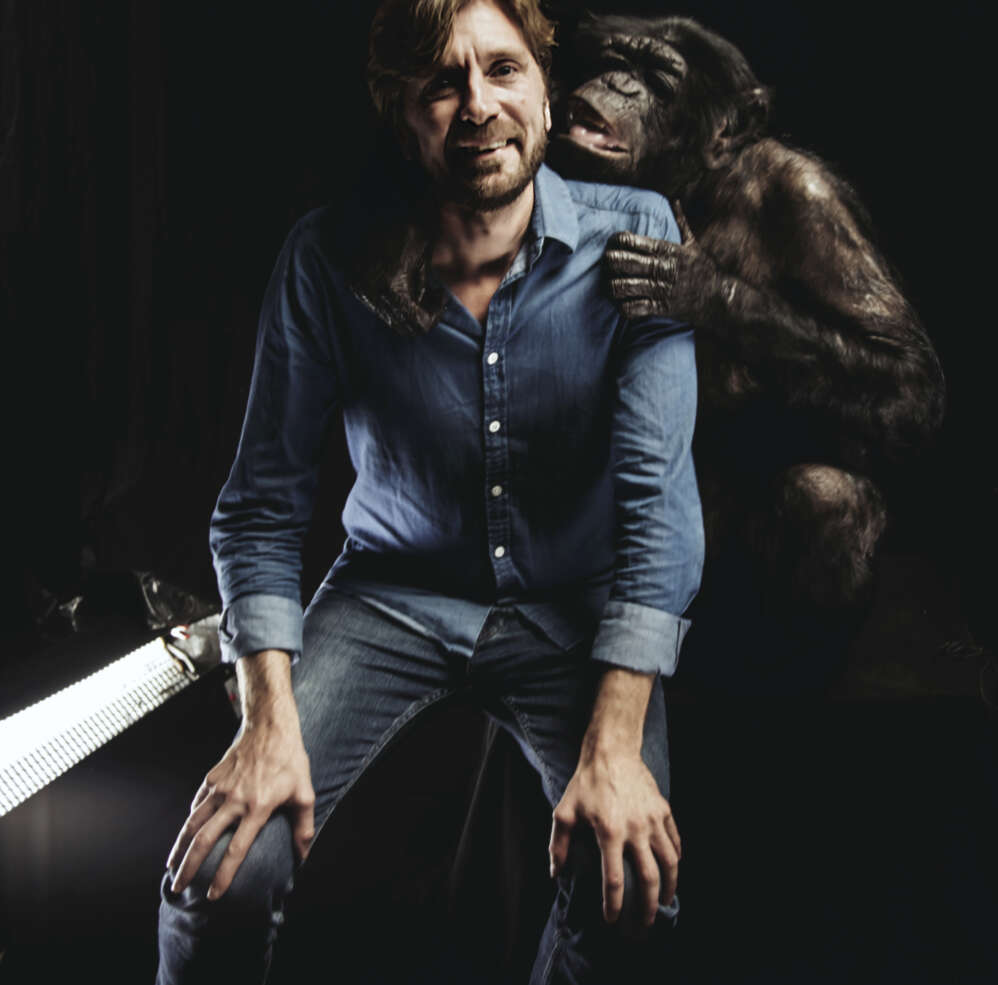WRITTEN BY: Annika Pham
At mid-festival, Ruben Östlund’s Palme d’or contender The Square was among the top four best rated films of the competition. The director spoke to us.

At mid-festival, Ruben Östlund’s Palme d’or contender The Square was among the top four best rated films of the competition. The director spoke to us.
How does it feel to be for the first time in official competition in Cannes?
Ruben Östlund: I love being in competition! It’s super. This has been my aim for many years. And I was actually thinking of the audience of the Théâtre Lumiere in Cannes when I wrote the scenes with the main actor Christian [Claes Bang] dressed in a tuxedo, in particular the one where he is digging into the trash!
How was your experience on the red carpet for the official evening screening?
Ruben Östlund: Actually we had prepared a stunt with Terry Notary [motion-capture artist, monkey imitator]. Before going to the official screening, we were desperately waiting for Terry’s luggage with his arm extensions for the stunt, but the luggage was lost at the airport and it finally arrived two minutes after we had left for the red carpet. That was a huge disappointment!
So although in your film you mock a PR company that creates an outrageous stunt to get media coverage, you wanted to create a PR stunt for your own film…
RÖ: Yes definitely. You have to:).
How did you get the idea for The Square and can you explain its significance and utopian connotation?
RO: The original idea came when I was working on my previous film Play. Young boys were mugging each other and the robberies took place in broad daylight in public spaces in front of everyone, but the kids who were mugged didn’t ask for help and adults didn’t help them. This is because of the bystander effect and also because of a change of attitude to the way we see ourselves in society.
My father told me that when he was six in the 50s, his parents put an address tag around his neck and sent him out in the streets to play. That was in central Stockholm. At the time you looked at other adults as people who would help children if they ended up in trouble, but today we raise our kids as if other adults would threaten our children, and at the same time, gated communities are being built. So we have changed our view of society, on who should be in public places and the notion of responsibility. So the original idea for The Square was to remind people of our role in society and our responsibilities.
Do you feel comedy is the best way to deliver an important message to a larger audience?
RO: I think that often when directors want to bring out important messages, they use the traditional dramatic conventions of arthouse cinema. But for me it’s not contradictory to deliver an important message in an entertaining way. That was my goal with the film. The Square raises important questions and I couldn’t see other ways to approach it.
For the first time you have a cast of Danish, US and Swedish actors. How was that experience to direct in other languages other than Swedish?
RO: I was a bit afraid that I wouldn’t be able to express in English some nuances in my direction, but there was no problem. Authenticity in acting also comes from body language. In a way it was easier for me to give directions in English than in Danish to Claes Bang.
You shot one scene a day over 70 days. Is this a technique that you used for Force Majeure?RÖ: Since I have a good producer in Erik Hemmendorff and we’ve worked together a long time, we were able to put a lot of money on the actual shooting and I think that time on set is what makes a film stand out and reach a different level. When I work with actors and we have time to evaluate what they are doing, suddenly something better and magical comes out that wasn’t written in the original script.
Claes Bang said that working with you was ‘amazing, fun but also tough’, that you pushed him to the edge…
RÖ: Yes! But the shooting only lasts 70 days while a film hopefully has a long life ahead.
As writer/director, are you interested in experimenting the long form story-telling format of TV drama?
RÖ: I am working on an English language TV comedy drama project called You Know That Weekend When You Were Away With The Kids? It deals with the notion of couple. It’s like an anthology, with different couples at each episode. One of them says to the other…you know, last weekend when you were away with the kids?...and this opens up for different scenarios.
The comedy drama will tackle unfaithfulness from an economical perspective. There will be a voice over at the beginning of the series saying: “the concept of being unfaithful started when men started to own land and being farmers. “When inheritance started to exist and it was possible for children to inherit from their parents, then it became important for the man to make sure his wife/partner wouldn’t have sex with someone else, to protect his off-springs. Before, men would reproduce whenever it felt right, like any other animal. But after the concept of inheritance was introduced, we’ve been confused and victims of our own instincts. This will be the main theme of the series.